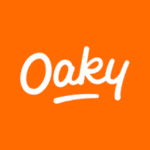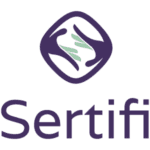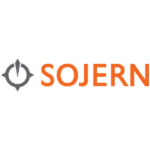 As a hotel marketer, you know that managing multiple communication channels to reach out to potential guests can be an overwhelming task. With the ever-evolving digital landscape, it’s becoming increasingly difficult to keep up with the latest trends and ensure consistent brand messaging across all channels. To make matters worse, gathering insights from guest data is often time-consuming and manual processes are prone to errors.
As a hotel marketer, you know that managing multiple communication channels to reach out to potential guests can be an overwhelming task. With the ever-evolving digital landscape, it’s becoming increasingly difficult to keep up with the latest trends and ensure consistent brand messaging across all channels. To make matters worse, gathering insights from guest data is often time-consuming and manual processes are prone to errors.
Organising and structuring your guest data properly is essential not only for improving outcomes within the marketing department but also for saving time, which is one of the key concerns of hotel marketers. In this regard, a hospitality customer relationship management (CRM) system is a crucial tool for achieving your objectives.
What is customer relationship management software for the hospitality industry?
A CRM for hospitality combines data from numerous sources and serves as a central data library for all of your guest data. It is different from any other general CRMs because it has into consideration all the important data hotels need for their business and the way it is structured makes sense for hospitality.
A CRM enables you to have all relevant data in one place, including contact information, preferences, booking history, and communication exchanges, by establishing a unified view of guest profiles. This means you can get a general overview of what is happening in your business and who your guests are and what are their preferences.
According to the Customer, 76% of hoteliers claim that CRM helps them gain insights about the guests and their needs. A deeper, more detailed understanding of guests leads to stronger relationships and more loyalty.
But that is not all. There are 4 ways in which hotel CRM software can help marketers automate their workflows and uplift their marketing efforts by saving them plenty of time and centralising their processes.
1. A hotel CRM and the power of automation
Automation should not be understated when it comes to a hospitality CRM. This kind of system can automate many of the repetitive, laborious marketing tasks that can otherwise consume a great deal of time and energy.
From email campaigns, WhatsApp campaigns to social media scheduling and even entire guest journeys, these processes can now be automated in a fraction of the time it used to take.
As a hotel marketer, you know time is of the essence and it is not a resource you can allow yourself to waste. In this sense, automation can free up your team’s resources and allow them to focus on creating high-performing initiatives rather than handling repetitive tasks.
Not only does automation save time but also supports consistency in messaging across different channels. How can you apply automation? Here are some tips:
- Review your guest journey and create triggers to automate specific campaigns, for example, booking confirmation, check-in reminders, and sending invoices, among others.
- Create audiences and extract insights from them in seconds, that will help you to understand where your guests are, how to allocate better your budget for paid media campaigns, and more.
- Collect data from guest interactions to understand your best and worst-performing campaigns and iterate.
- Create automated follow-up sequences to ensure that no leads are missed or left behind and everyone receives the same level of service independently of the channel they use (SMS, email, WhatsApp).
From wherever you look at it, you will be saving a lot of time and effort (and money) because tasks that can take up to several hours will be handled in minutes with the help of a CRM.
2. A hotel CRM and personalisation
Personalisation is key when it comes to hotel marketing, as it helps create stronger connections and relationships with potential guests. And this is another area where your CRM can help you thrive while saving time.
The main thing you need to have in mind is that one of the greatest powers of a CRM has to do with the ability to analyse data and create different categories. These systems allow you to group contacts based on various criteria such as booking history, demographics, and more so you can identify different audiences such as high-spenders, family bookings, returning guests, and more.
By understanding the demographic information and individual needs of each guest, you can deliver messages that will truly resonate with that segment instead of coming out of ChatGPT, which in consequence will boost engagement rates and conversions.
Personalisation and segmentation are essential elements of a successful hospitality CRM. With the ability to tailor messages to specific audiences, hotels can build stronger relationships with their guests by providing more personalised experiences.
At the same time, it will build a better guest experience since the content will be based on past bookings or preferences that are registered in your system.
3. A hotel CRM and clean and centralised guest data
Accurate and up-to-date guest data is essential to any successful marketing campaign. Hospitality CRM platforms are designed to provide a centralised view of all guest information in one place, allowing you to quickly access the latest insights.
This not only helps streamline customer segmentation and personalisation efforts but also ensures that campaigns are based on accurate data. At the same time, it saves a lot of time by allowing you to get all the data into one platform without having to switch between systems to get more information.
Your hotel CRM acts as your one source of truth. Once the data is collected, cleaned and structured, it provides a wealth of insights into customer behaviour and preferences, which you can use the data to identify patterns and create new initiatives or even modify your offering.
Having no data limitations and a visual way of structuring your guest data will help you to have a better understanding of your customers. There is nothing that works better than a holistic view of each guest.
4. Hotel CRM and analytics for better performance
Having access to analytics is critical in understanding the effectiveness of your marketing efforts. The more based on data your decisions can be, the better results you will get. In that sense, your CRM will help you to easily track KPIs such as open rate, click-through rate, repeat purchase, number of touchpoints and so on.
By tracking these KPIs, you can make data-driven decisions about your marketing campaigns, customer service, and other aspects of your business. This will have surprisingly different results to making blind decisions without any data to back them up.
For example, if you see that your conversion rate is low, you can use this data to make changes to your marketing campaigns. You might need to target a different audience, change the messaging, the image, or offer different incentives.
A/B testing is a great way to test different versions of a marketing campaign or other customer touchpoints to see which one performs better. For example, you could A/B test different email subject lines to see which one gets the highest open rate.
For all of these efforts, your hotel CRM will be key not only to save time but to give you a clean overview and straightforward information you can use to improve.
Conclusion
All of the features previously reviewed make a hospitality CRM an essential tool for any hotel business looking to increase marketing efficiency and grow loyalty through better targeting of customers.

































